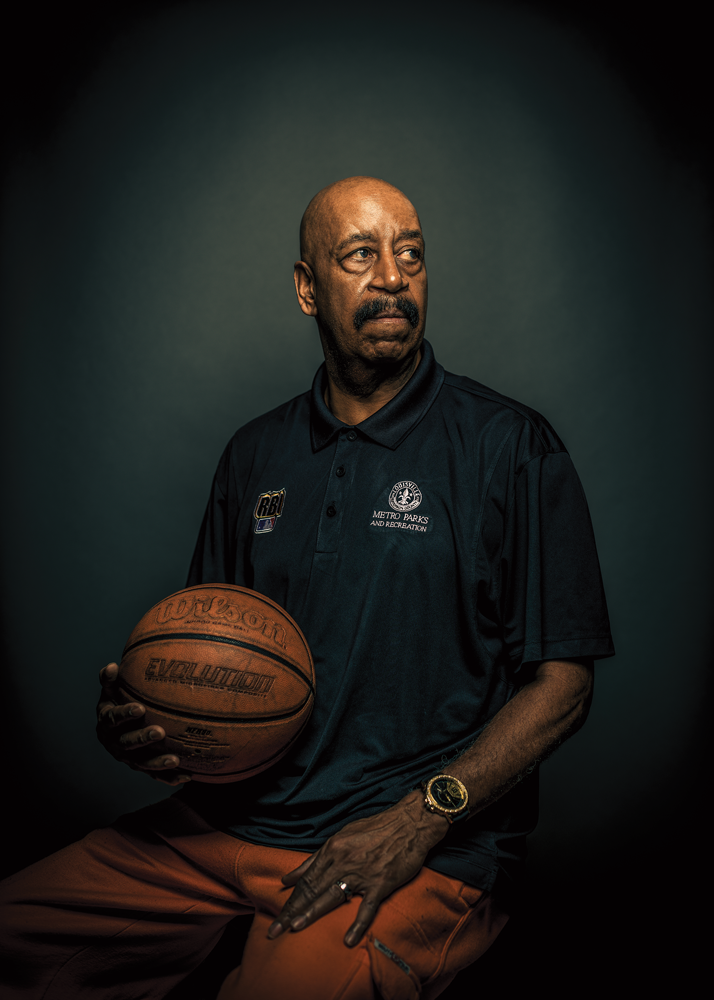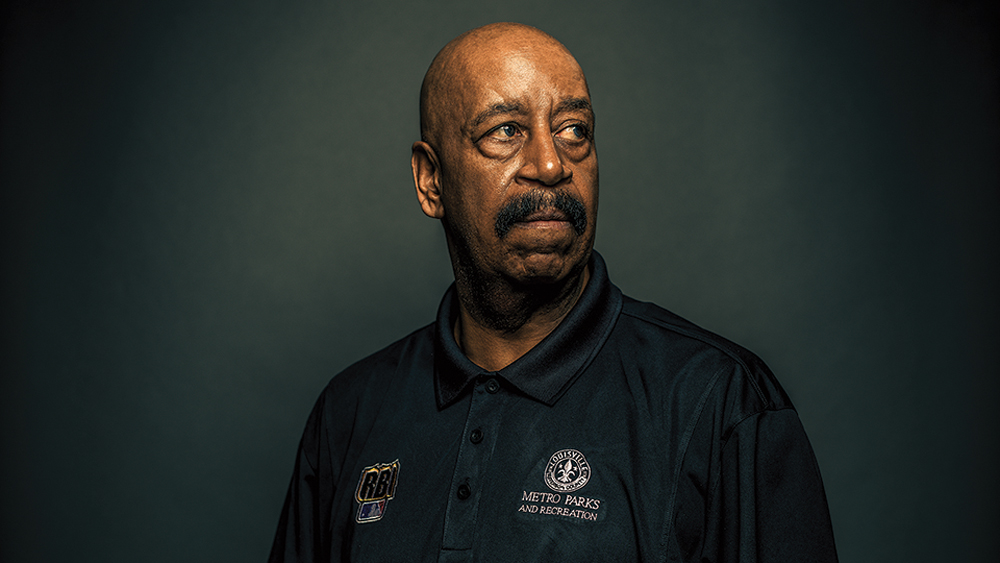“I’ve always been a shooter. That’s a fact,” Ron King says. During his playing days, he says, he’d be 25 or 30 feet from the basketball hoop and the crowd would shout, “Lay-up.” “It was a lay-up from 30 feet because I just didn’t miss,” King says. “I had the mentality: You can’t outshoot me. It can’t be done.” King’s former teammate Melvin Brooks says, “If we’d had the three-point line back then, he would have averaged 60 points (a game). He was that good.”
King, a shooting guard, scored 44 points in the 1969 Kentucky High School Athletic Association basketball championship game, guiding west Louisville’s Central High School Yellowjackets to their first state championship. (Central won again in 1974.) In 1972, King led Florida State to its first and only NCAA Final Four and national championship game, putting up 27 points in a loss to the John Wooden-coached UCLA Bruins.
March 29 marks the 50th anniversary of the state championship at Central, which was Louisville’s only public high school for African-Americans until the city’s schools desegregated in 1956. The KHSAA started holding its Sweet Sixteen state tournament in 1918, but predominantly African-American schools like Central and Paul Laurence Dunbar in Lexington were barred from competing until 1958. State Sen. Gerald Neal, whose district includes parts of west Louisville, was a student at Kentucky State University in 1969 but followed the Yellowjackets’ season closely. “Central had been the premier team, particularly during segregation,” Neal says. “When Central played any of these white teams they previously could not play, it was a big deal. When they won the championship, it was like the world exploded.” In February, Neal attended two celebrations for the 1969 team. Gov. Matt Bevin recognized the team’s surviving members in the State Capitol on Feb. 6, and, two days later, Central honored the team during a basketball game.

"I've always been a shooter. That's a fact."
King never set out to become a basketball star. In fact, baseball had always been his favorite sport. He started playing organized basketball at DuValle Junior High School, in the Park DuValle neighborhood, simply because he was tall. During his sophomore year at Central, he was happy just to make the team. But then his coaches had an observation that surprised him. “They told me that I should be starting,” King says. “I couldn’t believe that because Central had so many good players that I looked up to. They saw something in me that I didn’t see in myself. That really gave me the confidence I needed.”
Brooks, the former teammate, says Central had fielded championship-caliber teams before, but the referees would call fouls to manipulate the outcome of close games because they didn’t want an African-American team to win. But the combination of King’s scoring ability and the Yellowjackets’ intense full-court press defense, Brooks says, made the 1969 team “uncheatable and unbeatable.” Central had a 35-1 record that year. The one loss came by a single point to Shawnee, another predominantly African-American school in the West End. For the rest of the season, Central blew teams out. The Yellowjackets beat their championship opponent, Ohio County, 101-72.
After college, King became a journeyman in the NBA before playing overseas, where he ended his playing career in Israel. In 1978, he became youth director at the California Community Center in west Louisville (and joined Metro Parks in 1999). After more than four decades, he’s seeing the children and grandchildren of people he mentored when they were young.
When King wants to have a little fun, he challenges some of the kids at the community center to a shooting contest. To hear him tell it, despite being 67 years old with bad knees, he remains one of the best shooters in town. “I don’t like to lose, but I don’t mind losing if you beat me,” King says. “I’m still a competitor. After I win, I always tell the kids, ‘You need to go home and Google Ron King.’”
This originally appeared in the March 2019 issue of Louisville Magazine as the Portrait. To subscribe to Louisville Magazine, click here. To find us on newsstands, click here.
Photo by William DeShazer, williamdeshazer.com


